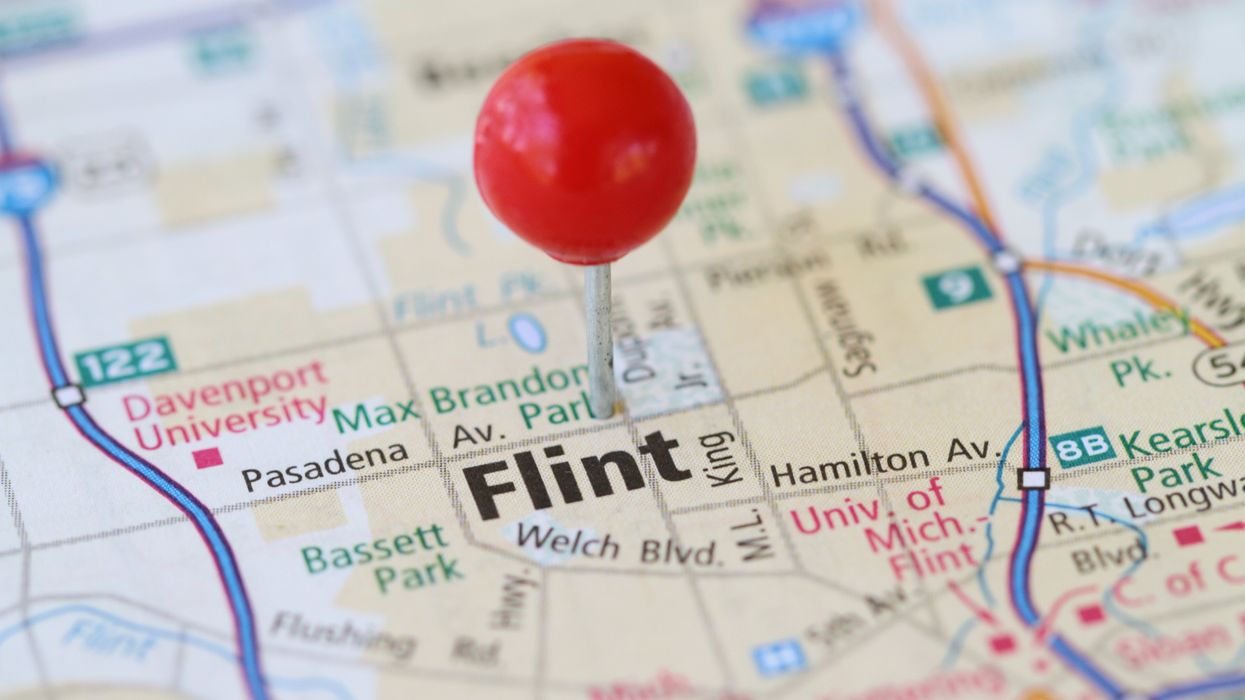Harwood is president and founder of The Harwood Institute. This is the latest entry in his series based on the "Enough. Time to Build.” campaign, which calls on community leaders and active citizens to step forward and build together.
Flint, Mich., is known nationally for everything that is wrong with it. Water crisis. Persistent poverty. Crime. Lost automotive jobs. Declining population. But I just returned to Flint for a series of “Enough. Time to Build.” campaign events, 25 years after I worked with the community — and there’s a lot right with this town. In fact, Flint is a rising symbol of how America can build together.
I got into Flint late on a Tuesday. Just hours later I was meeting with a group of 15 or so Flint residents who call themselves racial healing practitioners, in advance of a public event the following day. They came from all parts of town. They included Black, Latino and white folks, among others. They were different ages and income levels. In short, they reflected the rich diversity of Flint. They reflected much of America.
It was an especially frigid night, which is saying something given Michigan‘s notorious winters. But people braved the cold and came out. We spent two hours together in folding chairs around plastic tables. We talked about the meaning of their work and how they can deepen and accelerate it. At a time of rampant division, pervasive mistrust and lost hope in our society, what emerged is a story of perseverance, grit, progress and authentic hope.
One individual, a middle-aged Black man, was particularly vocal. He called Flint’s journey as a community, and more specifically its efforts combating racism, an “ongoing struggle.” His voice rose at times, his frustration palpable. Much more progress is needed, he declared. He’s tired of waiting.
And yet, this man and others in the room spoke of the remarkable progress their shared efforts were producing. They told me about how their racial healing work had catalyzed a chain reaction of actions in Flint that was spreading throughout the community, extending well beyond racial healing.
It begins with their own group. Amid so much loneliness and isolation in our lives, these racial healing practitioners had created a special home for themselves — a place where they could connect and be vulnerable about the difficult issues facing Flint and in their own lives. A noticeable quiet came over the once noisy room as different individuals testified to the bonds of trust they had forged with one another — indeed, the love they had come to share for one another. We all long for such trust, connection and belonging.
They had been trained to hold racial healing circles, bringing people together from across Flint to have hard conversations about race and racism. These aren’t easy conversations anywhere or at any time. There has been much written about how such conversations can blow up, even lead to more acrimony and division. But they said people throughout the community are yearning for these conversations. They keep holding them, and people keep coming. Demand is going up, not down. Something noteworthy is happening in Flint.
I often say that “talk alone” won’t solve the problems we face today. I have come to firmly believe this. We need to build together, and that’s what they are doing in Flint. The conversations they’re holding are rippling into various organizations and institutions, which is prompting concrete action to change how these groups relate to the community and do their work. For years, Flint’s organizations expected residents to change according to their plans; now, organizations are changing to meet residents where they are. This is producing new initiatives and programs at places like the Community Foundation of Greater Flint, Flint Neighborhoods United and the Sloan Museum of Discovery.
I launched our “Enough. Time to Build.” campaign because I believe the change we need in this country is going to come from local communities. These racial healers are demonstrating that behaviors, mindsets and norms can shift, and that healing can occur. This is what we need to see more of across the country.
As the hours passed that evening, I kept looking around the room, and I kept thinking to myself how special that group was. The diversity and different lived experiences. The passion and practicality. The strength and vulnerability. The obstacles and the progress. The frustration and the sense of hope.
So much of our society is wrapped around pushing division, hate, bigotry, despair and winning at any cost. Yet here are the healers. Everyday folks doing remarkable things. They are builders in the truest sense. Creators of something stronger, better, more inclusive. They are agents of hope.
One racial healer already emailed to continue the conversation. There’s more work to do in Flint just like there is across our nation.




















Trump & Hegseth gave Mark Kelly a huge 2028 gift